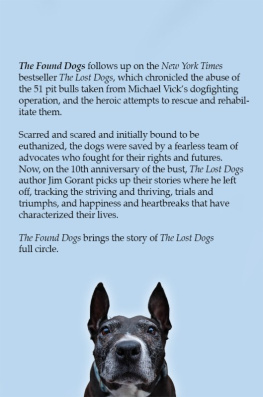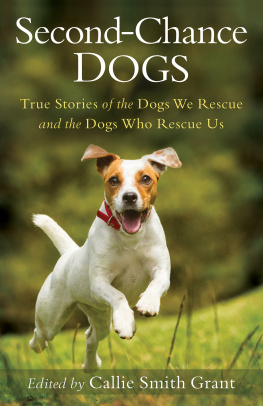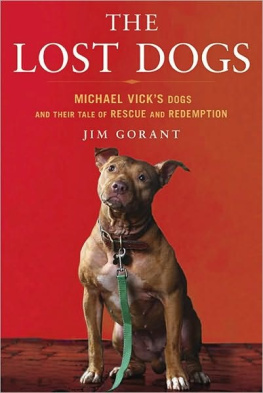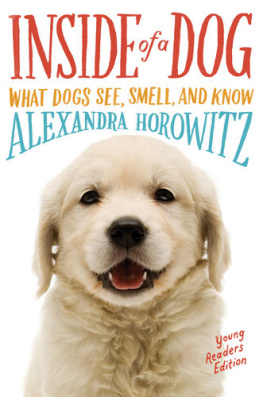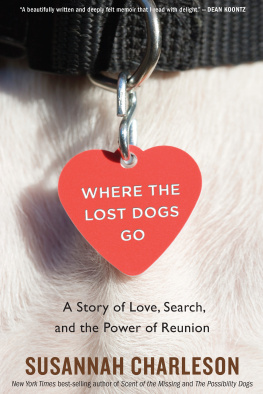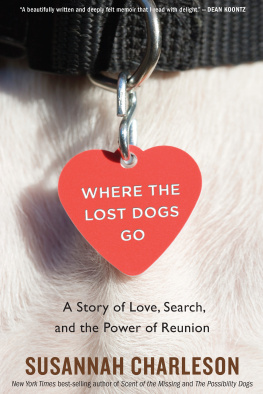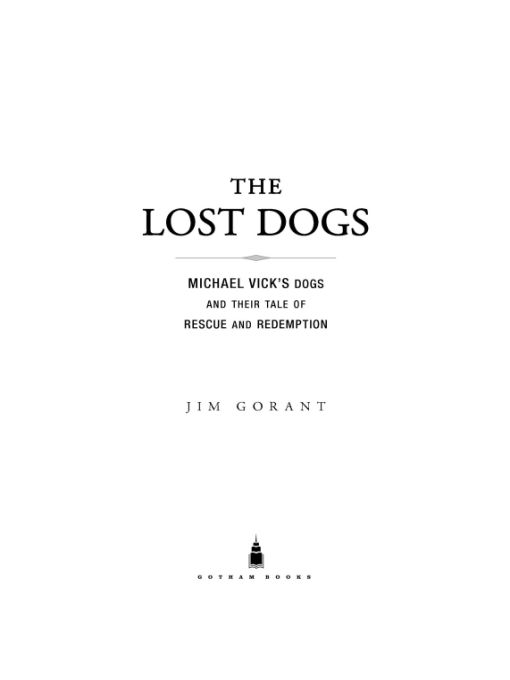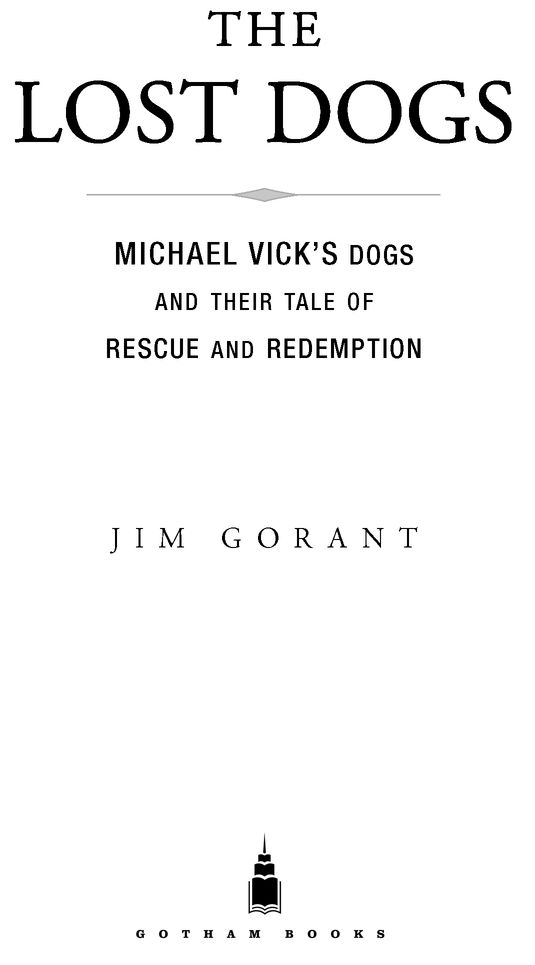Table of Contents
For Karin
INTRODUCTION
An article I wrote about the Michael Vick dogs appeared on the cover of the December 29, 2008, issue of Sports Illustrated. In the weeks after, the magazine received almost 488 letters and e-mails about the story and the dog pictured on the cover, the most we got in response to any issue for that entire year. By an overwhelming majority the letters were supportive, but there were some detractors.
My greatest fear was a flood of complaints from people with friends or loved ones that had been injured or lost to pit bull attacks, but there were remarkably few of those. Most of the complainers fell into two groups. The first asked, What does this have to do with sports? A fair question, if you take the narrowest view of the subject. If all you want from your subscription are games and players and straight-up analysis, then thats a legitimate gripe. I would argue, however, that what defines Sports Illustrated and has set it apart for more than fifty years are well-told stories that attempt to put sports into a larger perspective, to offer a deeper and broader view of how the people and events in question reflect and contribute to the larger social and moral makeup of our society. To each his own, I suppose.
The second complaint was more troubling. In its simplest incarnation it usually went something like this: Why does it matter, theyre just dogs? The more verbose in this camp might elaborate: People are dying and starving every day and weve got bigger problems. No one cares if you kill cows or chickens or hunt deer. Whats different about dogs?
What is different about dogs? I had not directly addressed the question in the article. On some level it seemed obvious to me, but at the same time I couldnt put a satisfying answer to words. As I started work on this book, the question hung over my head. As I was interviewing experts, reading books on canine history and behavior, touring shelters, and talking to dog lovers, I processed a lot of the information through the prism of that question.
The answer, cobbled together from all those readings and conversations, took me back to the beginning. Men first domesticated dogs more than ten thousand years ago, when our ancestors were hunting for their meals and sleeping next to open fires at night. Dogs were instant helpers in our struggle for survival. They guarded us in the dark and helped us find food by day. We offered them something, too, scraps of food, some measure of protection, the heat of the flames. In an article about the origin of dogs that ran in the New York Times in early 2010, one expert on dog genetics theorized that dogs could have been the sentries that let hunter-gatherers settle without fear of surprise attack. They may also have been the first major item of inherited wealth, preceding cattle, and so could have laid the foundations for the gradations of wealth and social hierarchy that differentiated settled groups from their hunter-gatherer predecessors.
Certainly, as man rose in the world, dogs came with us, perhaps even aiding the advance. They continued to guard us and help with hunting, but they did more. They marched with armies into war, they worked by our side, hauling, pulling, herding, retrieving. We manipulated their genetic makeup to suit our purposes, crossbreeding types to create animals that could kill the rats infesting our cities or search for those lost in the snow or the woods.
In return we brought them into our homes, made them part of our families. We offered them love and companionship, and they returned the gesture. From the start it was a compact: You do this for us and well do that for you.
Our relationship with dogs has always been different than it has been with livestock or wildlife. The only other animal that comes close is the horse, which has undoubtedly been a partner in our evolution and a companion. But a horse cant curl up at the bottom of your bed at night, and it cant come up and lick your face when youre feeling down. Dogs have that ability to sense what were feeling and commiserate. Theres a reason theyre called mans best friend.
As for why our bond with them matters, there are reasons for that, too. If you hang around animal activists for a while, youll inevitably hear repeated a famous Gandhi quote: The greatness of a nation and its moral progress can be judged by the way its animals are treated. The idea being that in order to lift the whole of society, you must first prop up the lowest among its many parts. If you show goodwill and kindness toward those who cannot stand up for themselves, you set a tone of compassion and goodwill that permeates all.
To this day, I believe Donna Reynolds, one of the founders of Bay Area Doglovers Responsible About Pitbulls (BAD RAP), a rescue organization at the center of the Vick case, said it best. Vick showed the worst of us, our bloodlust, but this [rescue effort] showed the best. I dont think any of us thought it was possiblethe government, the rescuers, the people involved. We like to think we have life figured out, and its nice that it can still surprise us, that sometimes we can accomplish things we had only dreamed of. Weve moved our evolution forward. Just a little bit, but we have, and Im happy to have been a part of that.
Im happy to have witnessed the effort and told the story.
PART 1
RESCUE
April 25, 2007, to August 28, 2007
A BROWN DOG SITS in a field. Theres a collar around her neck. Its three inches thick and attached to a heavy chain, which clips onto a car axle thats buried so one end sticks out of the ground. As the dog paces in the heat, the axle spins, ensuring that the rattling chain wont become entangled.
The dog paces a lot, wearing a circle in the scrubby weeds and sandy soil around the perimeter of the axle. She paces because theres little else to do. Sometimes a squirrel or a rabbit or a snake crosses nearby and she barks and chases it, or she lunges and leaps after the dragonflies and butterflies that zip and flutter past.
She flicks her tail at mosquitoes and buries her muzzle in her fur, chewing at the itchy crawly things that land on her. If shes lucky she digs up a rock that she can bat around and chew on, but otherwise there are just the weeds and the bugs and the hot sun inching across the sky.
She is not alone. Other dogs are spread around this clearing in the trees. They can see one another, hear one another bark and whine and growl, but they cant get to one another. They cant run, they cant play, they cant anything. They can get close to their immediate neighbors, stand almost face-to-face, but they can never touch, a planned positioning meant to frustrate and enrage them. For some it does; for many it simply makes them sad.
Out in the field are mothers, fathers, offspring, littermates. The families are easy to spot. Theres a group of sand-colored dogs, some with pink noses, some with black snouts. There is a group of red dogs, some small black dogs, a few white ones, a few black-and-whites. A handful of other colors and shapes are mixed in.


